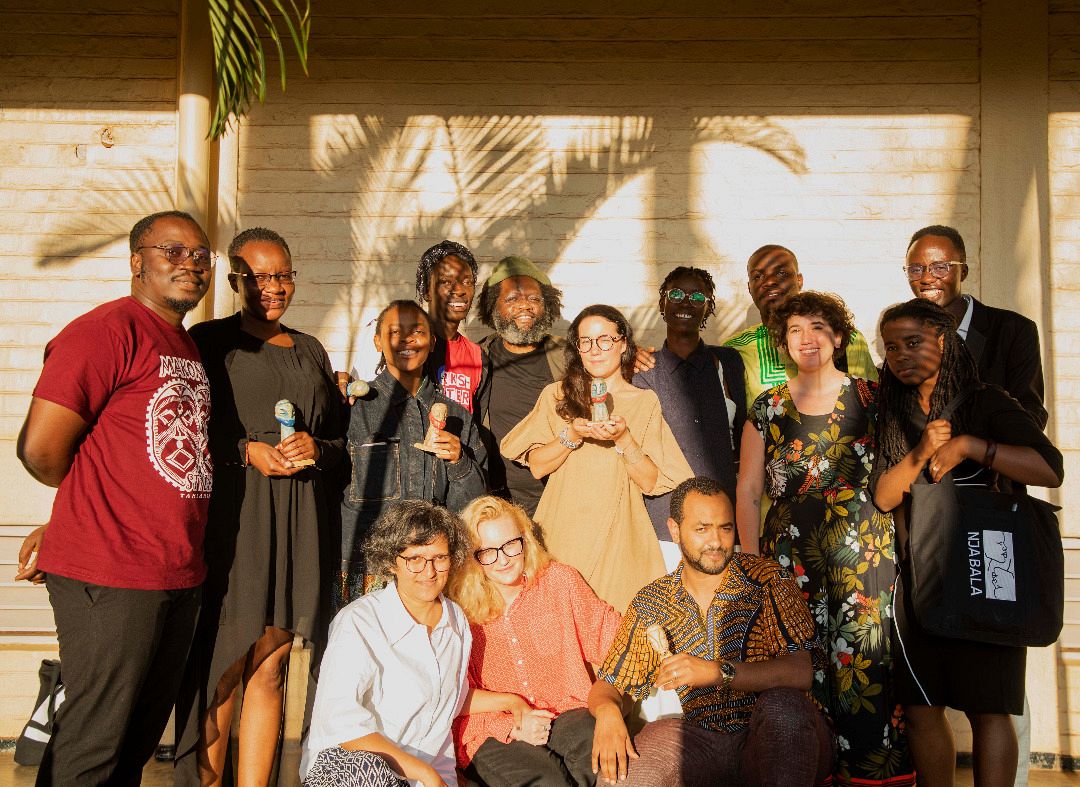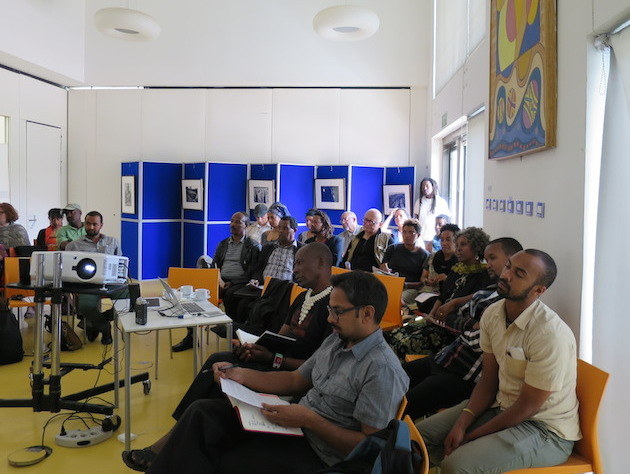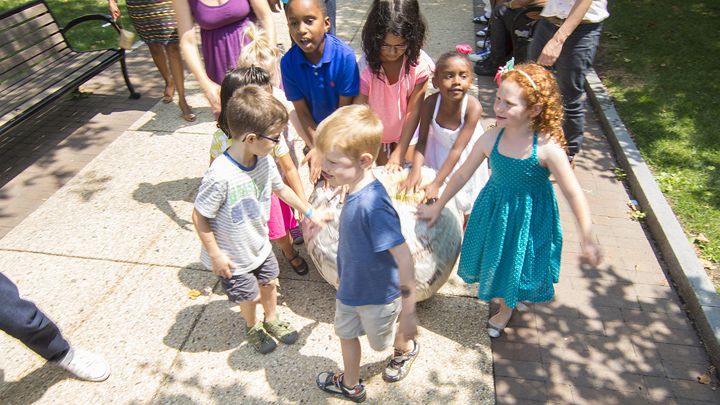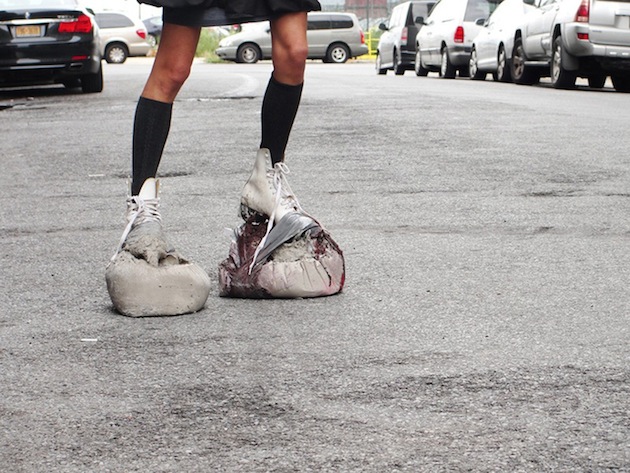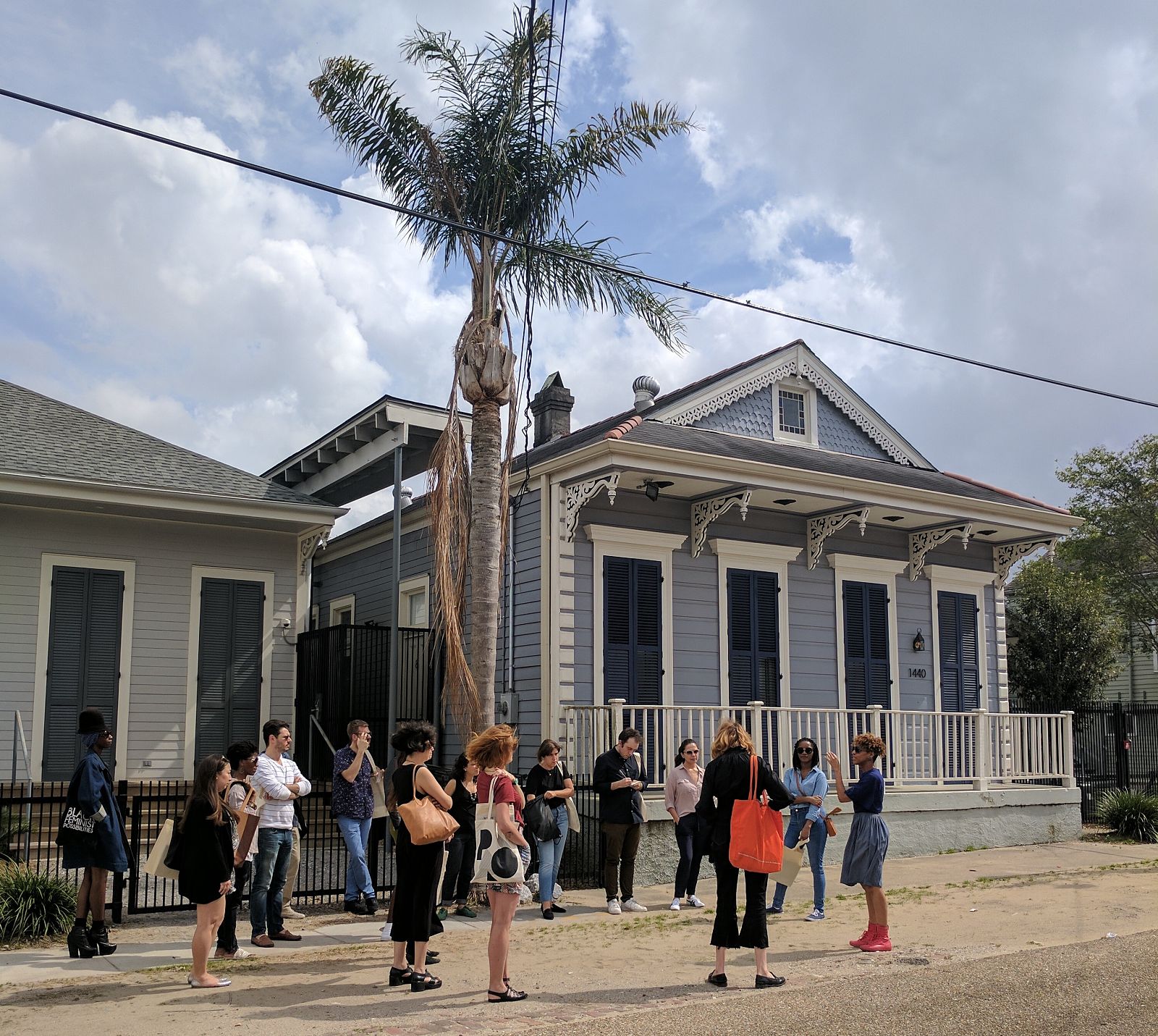Curator Tandazani Dhlakama developed this proposal during the 2016 Curatorial Intensive in Dakar.
How can humor be used to discuss a recent social-political crisis which is threatening to recur?
How is braiding a form of re-establishing and celebrating roots?
How does public engagement on public holidays question the histories we commemorate?
Home-Sick is an exploration of the idea of being sick of home, having anxiety or exhaustion because of one’s environment, city, nation or state. However, this homesickness also denotes a yearning for a sense of belonging. Each artist in this exhibition is yearning for their idea of home, whether it is a specific location, a romanticized idea of having place or a desire to escape political instability. What connects all three artists is the idea of subversion of dominant narratives and a reaching out to the past.
Lucia Nhamo's ‘Free Fall’ is a satirical reflection of the narratives surrounding Zimbabwe’s economic and political turmoil, particularly the years leading up to 2008. During this period, the nation endured a period of world-record hyperinflation and scarcity of basic commodities. At the same time, the national airline became very unpopular because of its unreliability. Through videos, performances and installations, using a fictional money and airplane scheduled to go nowhere, Nhamo invites us to make light of the situation, yet she shows the real anxieties that existed in the country at the time as well as uncertainties that may still exist today.
Nontsikelelo Mutiti’s ‘Ruka’ is an exploration of how hair braiding gives communities a sense of home. Whether it is Harlem, Harare, Coventry or Cape Town, intimate spaces like hair salons become places where the African diaspora construct identities. Old images depicting styles from the past, may become the primordial reference that influence new styles. Yet, in some instances, hairstyles from popular culture elsewhere are appropriated. The term kuruka means to braid or to weave. It is an art form that is mostly associated with women. Passing down this skill of weaving or braiding hair is also entangled with the notions of passing down and revising and revisiting stories. This body of work will be presented in the form of digital media, prints, photographs, and found objects.
Sethembile Msezane contests the irony of belonging but not seeing yourself in the cultural landscape of a nation. She questions the lingering presence of colonial monuments, by literally performing her own identity in public arenas. For her ‘Public Holiday’ series, she injects herself in civic spaces, and props herself up during significant national commemorative holidays such as Freedom Day or Heritage Day in South Africa. Though she performs silently, she confronts the historical architecture in her surroundings and begs audiences to join her in a quest for alternative narratives.
This exhibition will travel from Cape Town, South Africa, to Harare, Zimbabwe, since the issues highlighted by the artists are topical and relevant to audiences in both cities. There are large communities of Zimbabweans in South Africa, and at the same time when socio-political challenges arise in either state, the tremors are often felt by the other. Audiences will be able to relate to Nhamo’s work, as in the year 2016 Zimbabwe endured a cash crisis. In Msezane’s work, Cape Town audiences will recognize the historical monuments in her series, as her performances have taken place in that city. Furthermore, movements that have emerged from deep feelings of displacement, such as the ‘Rhodes Must Fall’ movement, started in Cape Town. Diaspora communities as well as locals in Cape Town and Harare will be able to relate to Mutiti’s exploration of hair braiding as it is an integral part of those particular societies.
Learn More
To learn more about this proposal, please email Tandazani Dhlakama at dhlakamat@gmail.com. To learn more about the Curatorial Intensive, email info@curatorsintl.org.

